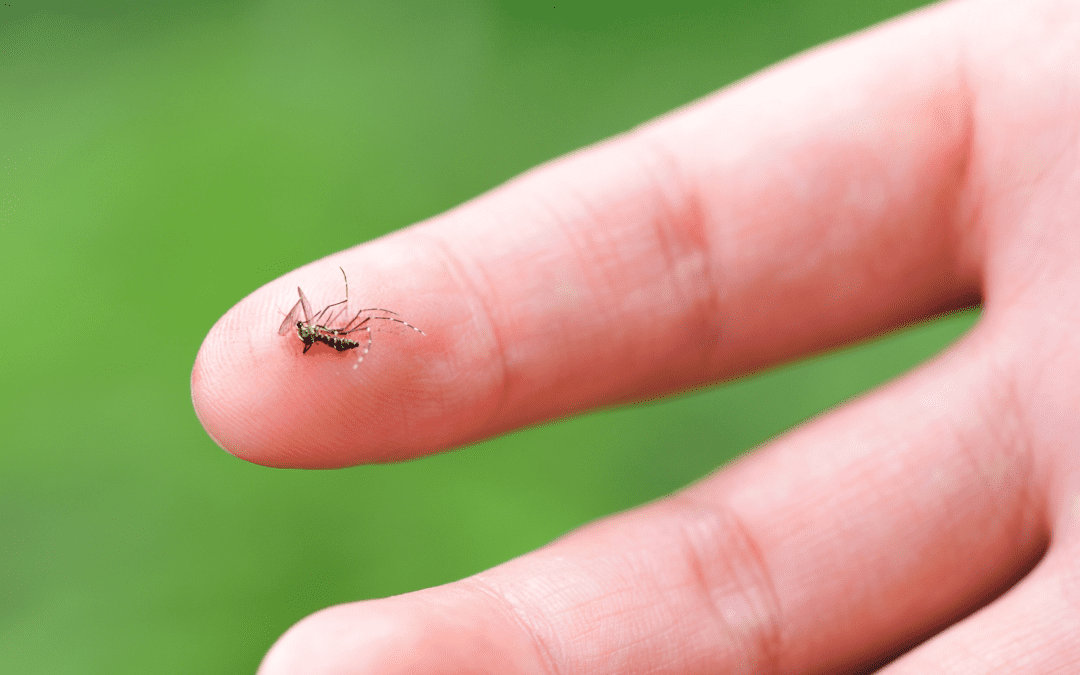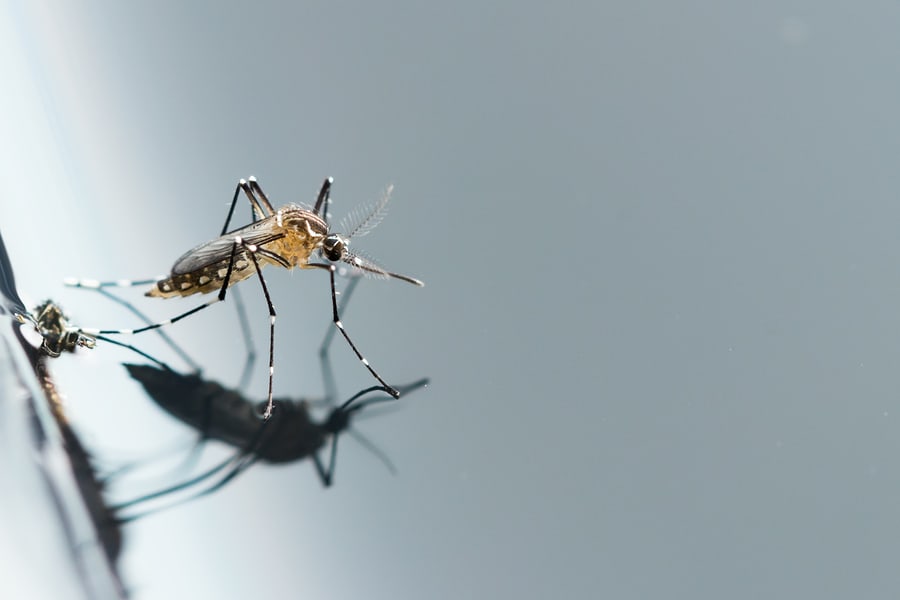READY TO GET STARTED?
REQUEST A FREE ESTIMATE
Fill out the form below or call (888) 466-7849 for a free, no-obligation estimate.

When you think of warmer weather, you imagine barbecues and beach trips. Unfortunately, these outdoor activities can be ruined by mosquito bites. Mosquitoes can put a damper on any summer fun, causing itchy red bumps and spreading diseases such as West Nile virus, Zika virus, and more within the U.S.
Most people are familiar with the maddening, itching sensation of a mosquito bite. But why do mosquito bites itch and why do they bite people in the first place? Let’s break it down.
Only female mosquitoes bite as they need protein to nourish their developing eggs. Biting mosquitoes use several different signals to locate a host, including carbon dioxide that we exhale, heat, and body odor. There are many factors that make some people appear more attractive to mosquitoes than others, including darker colored clothing, blood type, body size, being pregnant, sweat, and skin bacteria.
During the process of a mosquito biting you, it injects some of its own saliva which contains an anticoagulant and specific proteins. The anticoagulant prevents blood from clotting around the mosquito’s mouth. The proteins released by the mosquito trigger the body’s immune system, which releases histamine, a compound that increases cell count resulting in inflammation and swelling. The histamine also signals the nerves around the bite to cause it to itch.
If the mosquito problem is more than you can handle, then contacting your local pest control company might be the next step. as they will help set up the right prevention plan for your home.

Typically, when you’re swatting away mosquitoes, you’re most likely outside. But what if you notice these pesky bugs inside your home? Mosquitoes can be considered one of the most irritating pests during the warmer seasons. They’re usually found in areas of high humidity and survive by sucking blood from animals and humans. When you’re relaxing at home after a long day of work, the last thing you want to worry about is getting bit by one or several of these pests. Though, if you’re starting to see them inside your home, it’s probably time to start investigating.
Mosquitoes could easily sneak inside your home through broken screens or doors. Mosquitoes are extremely small, and if there’s a slightest gap open to enter your home, they will. Begin to inspect the screens, windows, and doors in your home. Make sure there aren’t any large gaps or tears that would allow any bugs to enter the home.
Mosquitoes are attracted to still and stagnant water. There’s a high chance of mosquito activity if your property is near standing water with a constant water source. Mosquitoes could easily enter your home and lay their eggs; female mosquitoes will lay eggs in water for survival.
House plants are also known to attract mosquitoes inside the house. If your house plant has a water tray, mosquitoes will typically start to lay their eggs there while also feeding off the plant to get energy. Clean out your water trays periodically to prevent mosquitoes from laying more eggs.
One factor that not all homeowners will think about is a possible plumbing problem attracting mosquitoes. Simple leaks with small pools of water will certainly attract these pests. Mosquitoes are not only attracted to just areas of moisture, they can also be found in shaded, covered areas. Make sure to check crawl spaces, basements, and other areas where a pipe could leak.
Finally, if you’ve inspected all these possible factors and are still being infested with mosquitoes or want to put in place a mosquito prevention plan, call a local pest control company where they can investigate the problem and create a mosquito reduction program designed for your home.